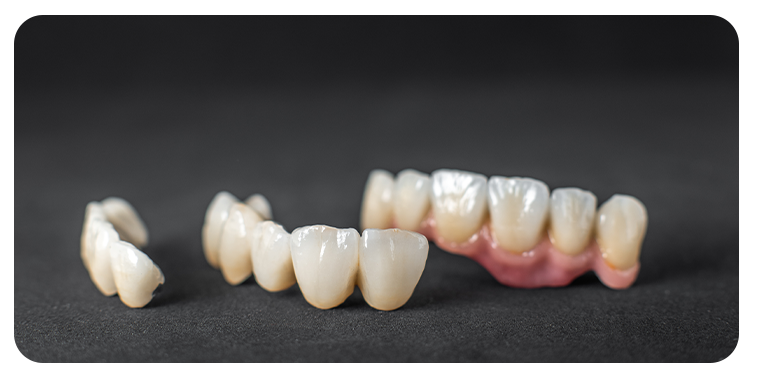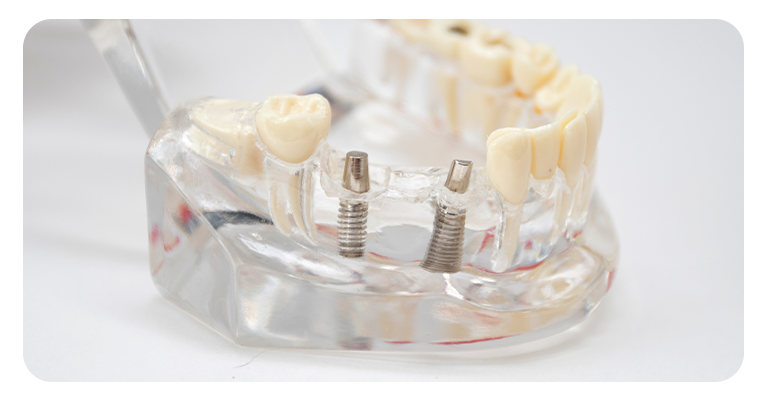
A Reliable and Functional Solution for Your Smile
Tooth loss can significantly impact both oral function and appearance. Whether caused by decay, trauma, or periodontal disease, missing multiple teeth can make it difficult to chew properly, speak clearly, or smile with confidence. Fortunately, modern dental treatments offer effective and long-lasting solutions. One of the most efficient methods is Multiple Teeth Replacement using Dental Implants, which restores both aesthetics and function while protecting your oral health.
Multiple teeth replacement refers to the restoration of several missing teeth using prosthetic solutions. The most advanced and durable option involves placing two or more dental implants that support a fixed bridge or multiple crowns. Unlike removable dentures, this method provides permanent results with a natural appearance and improved comfort.
Depending on the number and location of the missing teeth, the dentist designs a personalized treatment plan that distributes biting forces evenly and preserves jawbone health.


This treatment is ideal for patients who:
A comprehensive dental examination, including 3D imaging, helps determine the best treatment approach.
The multiple teeth replacement process involves the following steps:
A detailed evaluation is performed, including imaging and bite analysis, to plan implant placement and prosthetic design.
Under local anesthesia, implants are surgically placed into the jawbone. These act as artificial roots for the future bridge or crowns.
A healing phase of 2–4 months is necessary for osseointegration, during which the implants bond with the bone.
Once healing is complete, a custom-made bridge or crowns are fixed onto the implants, restoring function and aesthetics.


To maintain the health and longevity of your implants:


If you are missing multiple teeth and want a solution that combines function, aesthetics, and durability, implant-supported multiple teeth replacement could be the perfect option for you. Talk to your dentist today to find out if you're a candidate and take the first step toward a confident, healthy smile.
Teeth Grinding Habit: Its Relation to Stress and Solutions Teeth grinding, or bruxism, is closely linked to stress, anxiety, and tension. Solutions include: • Using a night guard • Stress-reduction practices (yoga, therapy, exercise) • Mindfulness techniques to become aware of daytime clenching Addressing the root causes of stress can significantly reduce grinding episodes.
Bone grafting restores bone in areas where it's lost due to tooth extraction, gum disease, or
trauma.Types of bone grafts include:
• Synthetic materials
• Donor or patient’s own bone (autograft)
Bone grafting supports future dental implant placement or maintains facial structure.
Sedation dentistry helps patients relax during treatments, especially those with dental
anxiety or undergoing long procedures.
Common methods include:
• Nitrous oxide (laughing gas)
• Intravenous (IV) sedation
Sedation levels can range from mild relaxation to deeper sleep-like states, depending on
the method used.
Causes of Tooth Stains:
• Foods and drinks like coffee, tea, red wine
• Tobacco use
• Aging and enamel thinning
Whitening Methods:
• Professional in-clinic whitening treatments
• Over-the-counter whitening products (less effective for deep stains)
Professional methods offer faster, more noticeable, and longer-lasting results.
After a root canal treatment:
• Expect mild tenderness, which usually subsides in a few days
• Avoid hard or chewy foods until the tooth is fully restored with a filling or crown
• Maintain oral hygiene, being gentle around the treated tooth
Regular dental follow-ups ensure the long-term success of the treatment.
